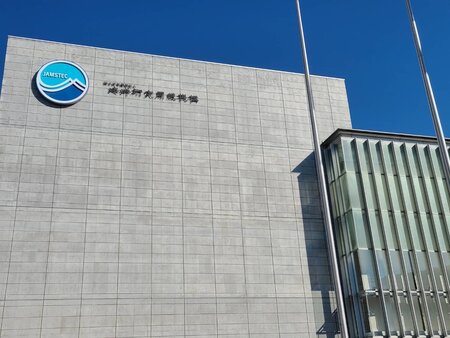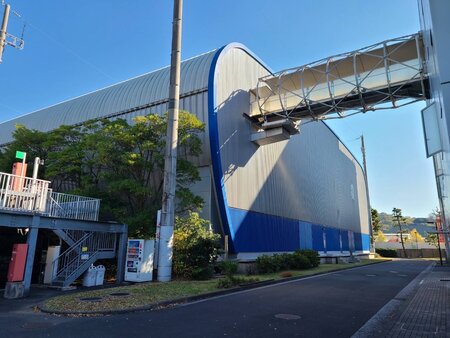ACTIVITYActivity reports
- HOME
- Activity reports
- Report on Internship at JAMSTEC (OZEKI, Course of Maritime Technology and Logistics)
Report on Internship at JAMSTEC
(OZEKI, Course of Maritime Technology and Logistics)
For three weeks starting from October 4, I participated in an internship in the Information Engineering Program of the Research Institute for Value-Added-Information Generation at the Japan Agency for Marine-Earth Science and Technology (JAMSTEC).
JAMSTEC's Yokohama Institute
I mainly worked on super-resolution of bathymetric charts. A global project called "Seabed 2030" that aims to produce highly accurate bathymetric charts of the world's ocean floors by 2030 is currently underway. Here in Japan, efforts to map the floor of the surrounding ocean are being led by the Nippon Foundation. The agency that hosted my internship is also involved in this project and is currently working on converting bathymetric charts with a 200-meter grid resolution into a 50-meter grid resolution. This is accomplished through super-resolution based on sonar data obtained by vessels as well as the 200-meter-resolution charts. My mission was to investigate how to perform super-resolution more efficiently with less data from vessels.
Appearance of the Earth Simulator used in the study
Since I normally research positioning technology using GPS, etc. and run programs based on the C language, I had almost no experience with image processing of bathymetric charts or large-scale computer analysis using the Earth Simulator. Although it took me a lot of time to understand and run the super-resolution program that I was assigned, it was an excellent opportunity to experience different fields. By the end, I was able to select 200-meter-resolution bathymetric charts at will and convert them into a 50-meter resolution. However, I did not make it to the point of investigating how to perform efficient super-resolution, so I only achieved about 60% of the initial objectives. One of the highlights of taking part in this internship was learning how to tackle challenges in a field outside my specialty. I had to use ingenuity in areas such as problems that could be tackled with skills I had acquired in my normal research, as well as developing other skills that I had not yet cultivated. Going forward, I will work even harder on my own research based on the experiences I gained in this internship.
OZEKI, 2nd year student, Course of Maritime Technology and Logistics



